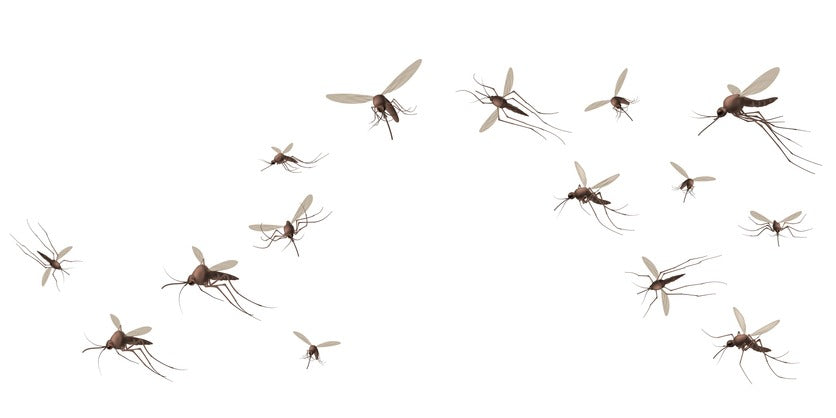Mosquitoes are not just irritating pests; they can also pose a risk to human health by transmitting various diseases. While most mosquito bites result in mild reactions, it's important to be aware of the potential for mosquito-borne illnesses. In this informative blog post, we will explore the connection between mosquito bites and the risk of getting sick, focusing on common mosquito-borne diseases and effective preventive measures.
- Mosquito-Borne Diseases: Mosquitoes are known to transmit several diseases, including:
a. Malaria: is a life-threatening disease caused by parasites transmitted through the bite of infected mosquitoes. Symptoms include fever, chills, headache, and body aches. Malaria is primarily found in tropical and subtropical regions.
b. Dengue Fever: is a viral infection characterized by high fever, severe headache, joint and muscle pain, and rash. Dengue is prevalent in tropical and subtropical regions, with symptoms ranging from mild to severe.
c. Zika Virus: is primarily transmitted through the bite of infected Aedes mosquitoes. Infection during pregnancy can cause birth defects. Symptoms include fever, rash, joint pain, and conjunctivitis.
d. West Nile Virus: is primarily transmitted through infected mosquitoes. Most people infected show no symptoms, but in some cases, it can cause fever, headache, body aches, and, rarely, severe neurological illnesses.
-
Transmission of Mosquito-Borne Illnesses: Mosquitoes become carriers of diseases when they bite infected humans or animals. They pick up the pathogens during a blood meal and then transmit them to other individuals through subsequent bites. Not all mosquitoes carry diseases, and the risk of transmission varies depending on factors such as geographical location and prevalence of the disease in the mosquito population.
-
Symptoms and Effects: The symptoms of mosquito-borne illnesses can range from mild to severe, depending on the specific disease and individual factors. Common symptoms include fever, headache, body aches, rash, and fatigue. In some cases, mosquito-borne illnesses can lead to severe complications, especially for vulnerable populations such as young children, the elderly, and individuals with weakened immune systems.
-
Preventive Measures: Prevention is crucial in reducing the risk of mosquito-borne illnesses. Here are effective preventive measures:
a. Eliminate Breeding Sites: Mosquitoes breed in stagnant water, so remove any standing water around your home, including in buckets, flower pots, and gutters.
b. Use Mosquito Repellents: Apply mosquito repellents containing recommended ingredients like DEET, picaridin, or oil of lemon eucalyptus to exposed skin and clothing. As well as maintaining a regular spraying schedule around your home.
c. Wear Protective Clothing: When in mosquito-prone areas, wear long sleeves, pants, and socks to minimize exposed skin.
d. Install Window and Door Screens: Use screens on windows and doors to prevent mosquitoes from entering indoor spaces.
e. Avoid Peak Mosquito Activity: Mosquitoes are most active during dawn and dusk, so try to limit outdoor activities during these times.
f. Consider Mosquito Nets: Use bed nets treated with insecticides, particularly in areas where malaria is prevalent.
- Seek Medical Attention: If you experience symptoms associated with mosquito-borne illnesses after being bitten, seek medical attention promptly. Early diagnosis and treatment can help manage symptoms and prevent complications.
Mosquito bites have the potential to make you sick by transmitting various diseases. Understanding the risks associated with mosquito-borne illnesses and implementing preventive measures are essential to protect yourself and your community. By taking proactive steps to reduce mosquito populations and following recommended preventive practices, you can minimize the risk of contracting mosquito-borne










